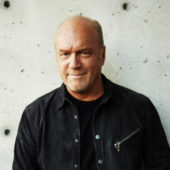Preparing for college often comes with waves of excitement and uncertainty for future planning. It’s a time where the question, ‘Do you know what you want to be when you grow up?’ is tackled head-on. So how can you tell if you are on the right track or not?
Professor and author Dr. Alex Chediak explains how knowing yourself and listening to advice from your peers will lead you on a successful education journey, without mortgaging the future to student debt and regretful decisions. He teaches us the value of peer and individual assessment from his book Beating the College Debt Trap.
Dr. Chediak says that before attending college, it’s important to truly understand what you are good at and what you enjoy doing. He shares an example from his experience as a professor,
“Sometimes students have unrealistic perceptions of their abilities in certain fields. They believe themselves to be really good at math, science, writing or whatnot; they think they’re going to be great at it and they’ve never really had a lot of opportunities to be assessed by those who are farther down the road of life.”
“The whole ‘everyone’s above average’ kind of mentality kicks in and then people start college and realize, ‘I’m actually not that good at music, or I’m not that good at art. I thought I was great at it, but I’m really not that good at it…then what must be my backup?’
Having realistic assessments of ourselves is a key factor to knowing who we are. Dr. Chediak shares a biblical comparison from Romans 12:3.
“Romans 12 says, ‘We also have analyzed ourselves with sober judgment.’ In other words, have a realistic judgment of who we are and what our gifts are, not overestimating our abilities, then allowing others to speak into our life as to what we’re good at and what we’re successful at.”
It’s important to pay attention to what our peers and accomplishments are telling us about our strengths.
“Listening to the data; not just to our hearts, but listening to the external data from other people and other experiences that we’ve had; objective accomplishments speak highly to what we’re good at.”
God didn’t design everyone to be the best at everything, so we need to be proactive about seeking the right career track, specific to the calling He has placed on our lives. Dr. Chediak reminds us that it’s wise to do extensive research before committing to a particular career path.
“Having some sense, ‘If I go into this career track, it’s going to require me to have certain skills to be successful, and if I’m not found to be successful, I need to be able to switch majors and pursue something else.’”
We also need to be prepared to use a backup plan. Dr. Chediak describes an example from the medial field,
“Medical schools, for example, 9 out of 10 freshmen who want to go to medical school will never get to medical school. They have to be in that freshman year with other options on the table; Plan B, Plan C and Plan D.”
Although we may have to do more work in discovering who we are and what He created us to do, we are reminded God always places people in our lives to help steer us in the right direction.




















